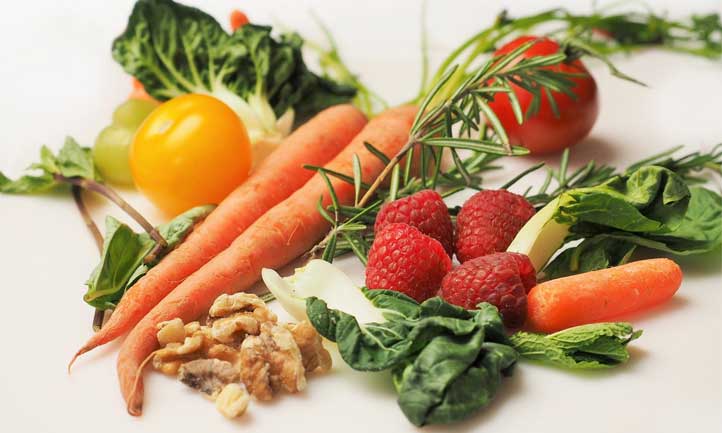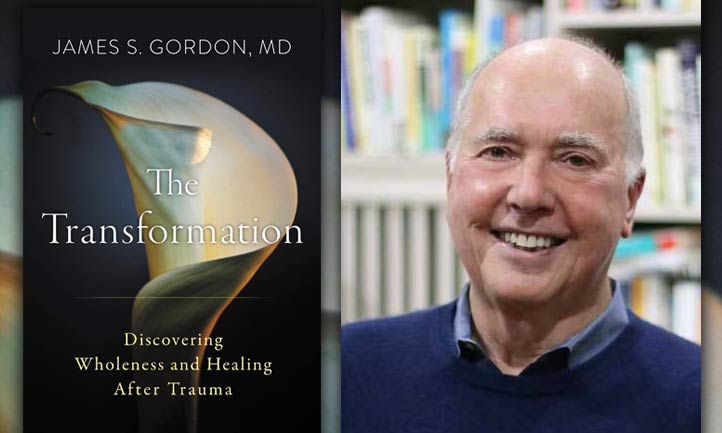The Trauma-Healing Diet
Author: James Gordon
The following article is an excerpt from Dr. Gordon's new book: "The Transformation: Discovering Wholeness and Healing After Trauma."
Books on trauma, even the very best of them, have little or nothing to say about the damage that trauma and chronic stress do to our digestive tract, and how that damage compounds the toll trauma takes on our mind, our brain, and the rest of our body. This is because everything we eat – and I mean everything – can either enhance or hinder trauma healing. I want you to know which foods are best for you but also why they are. That way, as you choose your foods and prepare your meals at home or order them in a restaurant, you’ll have a clear sense of what’s good for you.
How the Diet Works
This Trauma-Healing Diet is designed to significantly decrease the level of stress that trauma causes and to help reverse the damage it may have done to your brain as well as your gut and the rest of your body. Eating in a trauma-healing way will reverse the inflammation caused by trauma. It will ease you away from the comfort: food addictions that trauma may have caused - cravings for sweet, fatty, salty concoctions that provide jolts of sugar, reduce high levels of cortisol, stimulate the production of the feel-good hormone dopamine, and increases the level of calming, mood-enhancing serotonin. The diet will help you lose weight that stressed eating may have put on. It will improve your mood and the way your mind works. And keeping to a Trauma-Healing Diet will go a long way to preventing the chronic illnesses that so often follow in trauma’s wake.

Eat Whole Foods
When food is processed, it loses vital nutrients and most of the nourishing fiber that goes with them. Meanwhile, it’s being contaminated by the toxic chemicals — preservatives, colorings, and flavorings — that seduce our eyes and taste buds, prolonging shelf life, amp up profits for manufacturers, and compromise our health.
Make Non-Starchy Vegetables a Major Part of Your Diet
There is an amazing, colorful variety of health-promoting vegetables, all with vastly different tastes and textures. All contain antioxidants, which offset the effects of stress, as well as soluble fiber that our gut needs to function properly.
Include Starchy Vegetables
The sweet potato, a starchy vegetable that is rich in antioxidants and phytonutrients, is a wonderful alternative to white potatoes, pasta, and rice.
Fruits
Fruits are high in sugar, but they are gut- and mind-healthy – if eaten in moderation.
Eating Organic
Organic foods are definitely better for you. A number of studies have shown that an organic food diet is less carcinogenic. And many of the pesticides and herbicides that are typically used on plants may have negative effects on our brains, our mood, and our thinking processes. However, organic fruits, vegetables, and grains can be expensive. You can stretch your food budget, while sparing yourself health risks, if you use the guidelines prepared by the Environmental Working Group (EWG). The EWG strongly recommends putting your organic food money on the “dirty dozen,” the fruits and veggies with the most pesticides. These include: grapes, peaches, cherries, pears, kale, strawberries, spinach, nectarines, apples, tomatoes, celery, and potatoes. You can safely eat the nonorganic versions of other fruits and vegetables.
Plant Protein
Make beans and other legumes (lentils, chickpeas and soybeans) a foundational part of your diet. Seeds and nuts are excellent sources of protein and are rich in the fats we need for brain health.
Fish: Your Best Friend for Animal Protein
Fish are rich in the anti-inflammatory omega-3 fatty acids that make the membranes of brain cells more flexible, optimize the transmission of electrical signals from one cell to the next and promote maximal resilience and enhanced mood.
Meat
Instead of making meat a habit let it be more of a treat. Cutting way down on meat will improve the balance and health of your microbiome, the gut bacteria that can help you repair trauma induced decrease your body’s burden of pro-inflammatory omega-6s, and contribute to your overall well-being.
A High-Dose Supplements
For many years, I’ve been recommending high-dose multivitamin and multimineral supplements for traumatized and stressed people. When we’re stressed, our body’s demand for many nutrients increases. Recent research after an earthquake in New Zealand clearly shows that a high-dose multivitamin and multimineral supplement can help with anxiety, depression, and intrusive memories.
A Final Word
Sometimes you’ll quickly feel the benefits of the Trauma-Healing Diet. Sometimes the effects will be gradual and subtle. The shift to a largely organic, whole-food, plant-based, high-fiber diet is likely to make you feel more relaxed and energized in a week or two. Significantly decreasing highly processed food and sugar, particularly in somebody who’s been a comfort-food junkie, can have similarly rapid results. Eating wisely and sticking to the diet I’ve outlined, decreasing or eliminating alcohol and tobacco, combined with everything else you’re learning and using, is a reliable path to sure and steady trauma healing. Even if you don’t immediately feel that your new diet is making a difference, you can know that it’s providing a firm foundation for your comprehensive trauma-healing program. And it’s putting you on the royal road to long-term good physical, emotional, and mental health.

Dr. Gordon is the founder and executive director of the nonprofit Center for Mind-Body Medicine in Washington, D.C. and a TAPS Advisory Board member, as well as a Clinical Professor at Georgetown Medical School. To find out more about his Trauma-Healing Diet and other helpful techniques, you can read his new book, “The Transformation: Discovering Wholeness and Healing After Trauma.” His book is available on Smile.Amazon.com. If you select TAPS - Tragedy Assistance Program for Survivors as your designated charity, a portion of sales go to support TAPS programs.
